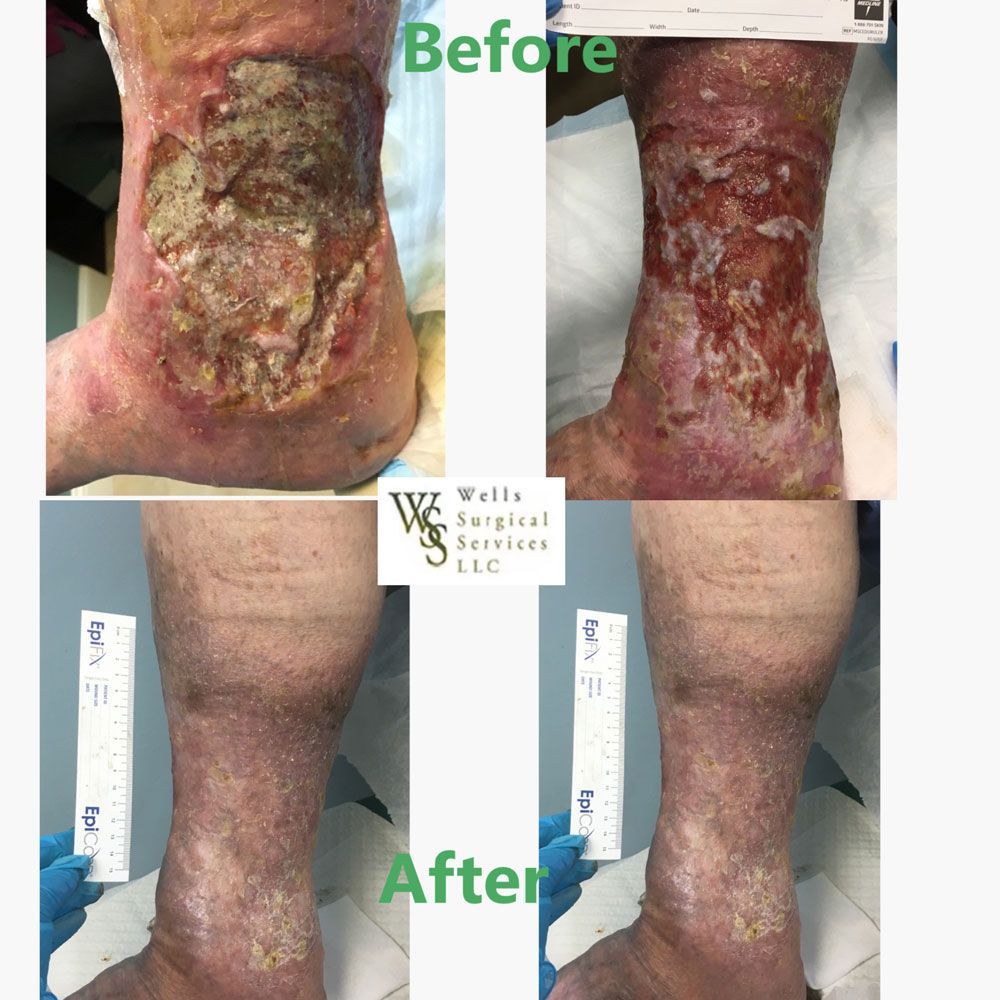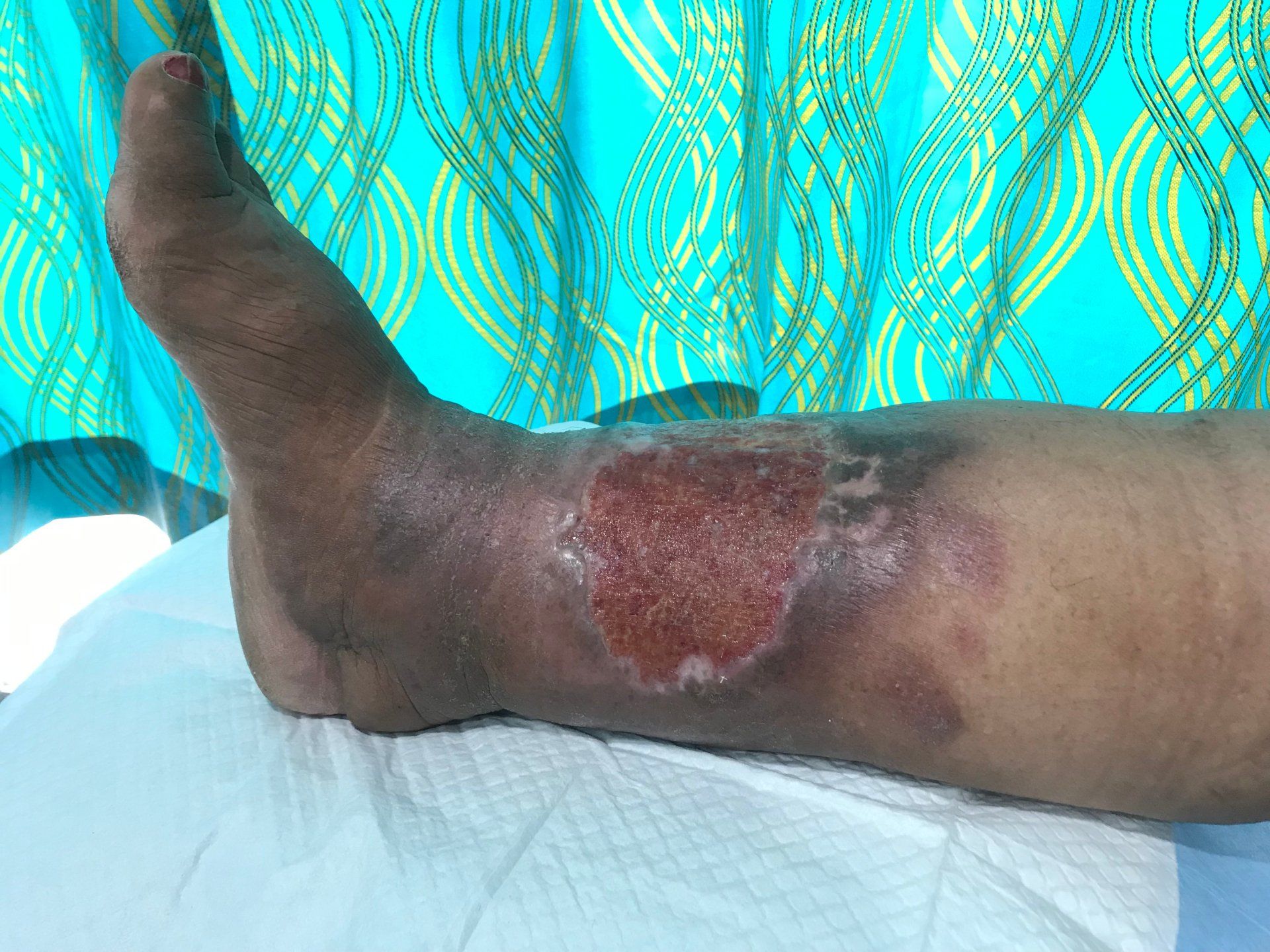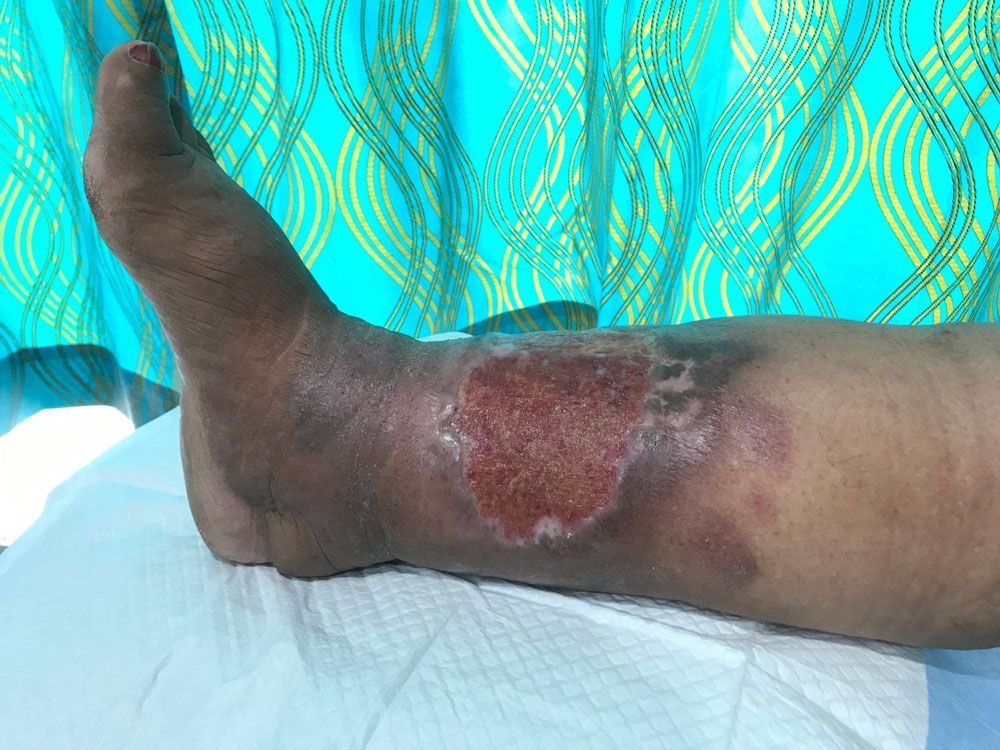Types of Wounds We Treat
Many
wounds fail to heal for a variety of reasons, including a lack of blood supply, oxygen, and nutrients, improper care of the wound, diseases, medications, and more. At
Wells Surgical Services LLC, we determine the type and or stage of your wound. Our doctor comes up with the best treatment plan option for you to expedite the healing process and get you back to your normal activities. To schedule an appointment at our wound care clinic in
Jacksonville, FL, contact us today.
Chronic Wound Types
Calciphylaxis Wounds
Calciphylaxis is a serious, uncommon disease in which calcium accumulates in small blood vessels of the fat and skin tissues. Calciphylaxis causes blood clots, painful skin ulcers and may cause serious infections that can lead to death. People who have calciphylaxis usually have kidney failure and are on dialysis or have had a kidney transplant. The condition can also occur in people without kidney disease.
Diabetic Wounds
Diabetes is one of the most common causes of difficult to heal wounds. If you have diabetes, please keep an eye for any wounds that can worsen. Some common signs of diabetic wounds and ulcers include numbness in the lower extremity, infection with pus drainage, or inflammation.
Hidradenitis Suppurativa
The skin lesions develop as a result of inflammation and infection of sweat glands. This condition features pea- to marble-sized lumps under the skin that can be painful and tend to enlarge and drain pus. They usually occur where skin rubs together, such as in the armpits, groin, and buttocks. Medications, corticosteroid injections, and sometimes surgery can help manage symptoms.
Infectious Wounds
Infectious wounds usually have a terrible odor, pus drainage, dead tissue, and inflammation. The cause of the infection can be bacterial, fungal, or viral, and of not treated with proper medication along with wound care, the wound will not heal properly.
Ischemic Wounds
Ischemic wounds will be pale and cold, and you might also notice a decrease in hair growth and a weak pulse sensation. Ischemia means that the wound area is not getting enough blood supply, oxygen, and nutrients to heal. They most often form on the legs, feet, and toes.
Radiation Poisoning Wounds
These types of wounds show redness, blistering, itching, inflammation, and other symptoms like nausea, vomiting, abdominal pain, and fever. Excessive exposure to radiation can cause damage to the exposed tissue.
Surgical Wounds
Surgical wounds usually have red and swollen tissue around the incision, which means that it could be infected or inflamed. Wounds caused by a surgery incision that is not healing need further evaluation.
Venous Ulcers
With venous ulcers, the skin appears shiny and smooth with minimal hair. These ulcers are superficial and irregularly shaped with pain and edema. They are caused by problems with blood flow in your leg veins. These types of wounds can lead to stasis, where the blood fails to circulate naturally.

Pressure Ulcer/ Injury
Patient with pressure ulcers need the appropriate offloading surfaces (mattress and cushion) to take the pressure off the wound site(s). It is important that all bony prominence is protected and off loaded. Patient needs to be turned at least every 1-2 hours and boost in their chairs regularly. Shearing and friction should be avoided at all times. The appropriate wound care is needed for closure and reduce the chances of recurrence.









